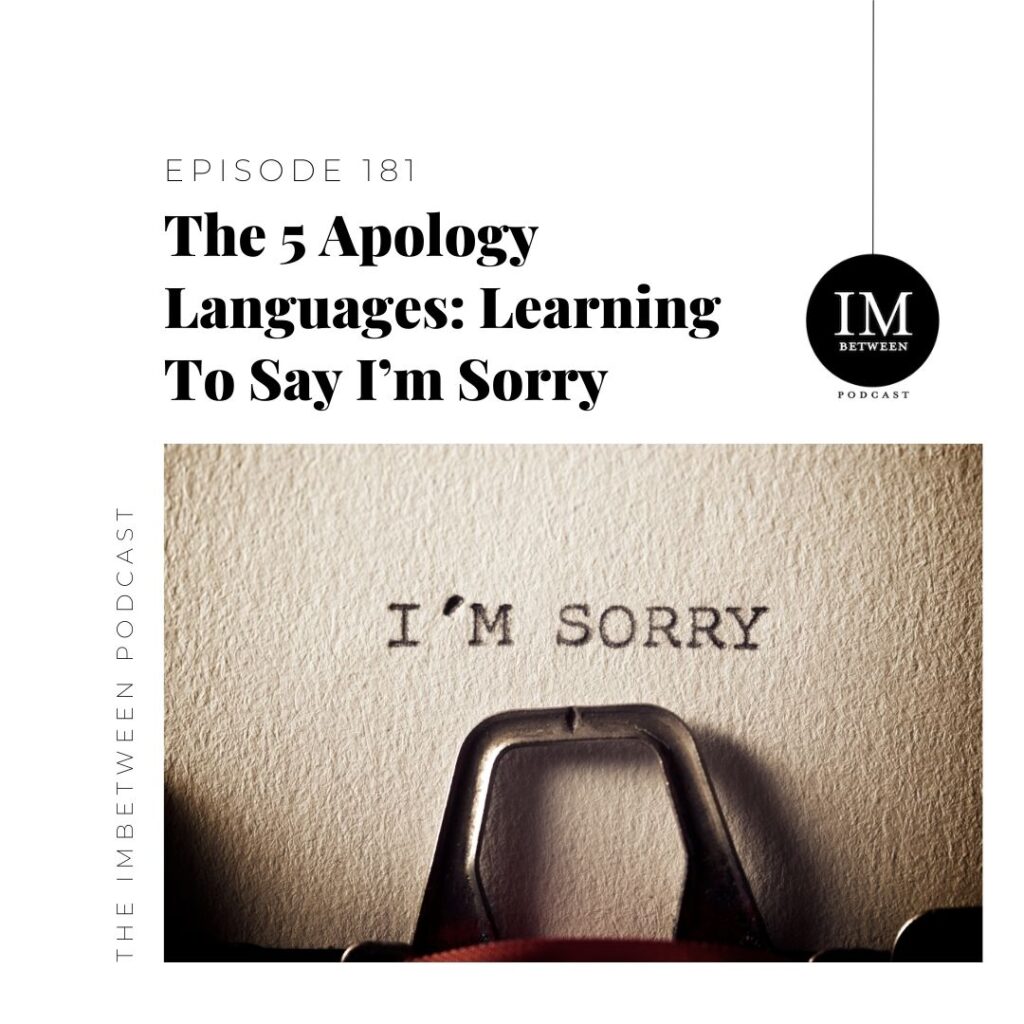181: The 5 Apology Languages: Learning To Say I’m Sorry
Daniel and Christina explore the nuances of apologizing in relationships by discussing the 5 Apology Languages by Dr. Gary Chapman. They delve into the emotional depth of expressing regret, the challenge of accepting responsibility without excuses, the significance of making restitution to show sincerity, and the commitment required for planned change to rebuild trust. Through personal anecdotes and practical advice, they underscore the importance of understanding and using these apology languages to foster forgiveness and reconciliation with the ones you love.

In This Episode, You Will Hear The Following:
- Importance of apologies in relationships
- What “fake” apologies are and what to watch out for
- The 5 Apology Languages: expressing regret, accepting responsibility, making restitution, planned change, and requesting forgiveness
- How forgiveness and trust are not to be equated
- Ways to discover your apology language and the apology language of others
Resources Mentioned In This Episode:
- The 5 Apology Languages: The Secret To Healthy Relationships by Dr. Gary Chapman
- Why Won’t You Apologize? Healing Big Betrayals and Everyday Hurts by Harriet Lerner
- Listen to our previous episode about The 7 New Love Languages and 4 Steps To Get Your Love Language Heard
- Do you need more help with learning to apologies? Listen to our previous episode: Do You Suck At Apologies? Here Are 4 Steps To Healing Hurts With Your Spouse
QUestions To Help Identify Your Apology Language:
- What do I expect the person to do or say?
- Ask yourself the question, “What do I expect the person to say or do that would make it possible for me to genuinely forgive them? You may find that your answer will involve several apology languages, and that’s okay.
- What hurts most deeply about this situation?
- This question is especially helpful if the offender has not yet apologized at all or has not apologized to your satisfaction.
- What language is most important when I apologize?
- This question is based on the assumption that the apology language you speak to others is probably the language you would most like to receive.
Journal Prompts For Self-Reflection:
- What do you expect the person to say or do that would make it possible for you to genuinely forgive them? You may find that your answer will involve several apology languages, and that’s okay.
- Reflect on a recent situation where you needed to apologize. What apology language did you naturally lean towards, and how did it impact the resolution?
- Consider a time when someone apologized to you. Which apology language did they use, and did it resonate with you? Why or why not?
- Explore a relationship in your life where apologies are frequent. Identify the primary apology language in that relationship and reflect on its effectiveness.
- Think about a past conflict that remains unresolved. How might applying the principles of the 5 apology languages contribute to finding a resolution?
Discussion Prompts For You As A Couple:
- How do you generally feel about apologies in relationships? Do you find them easy or challenging?
- Consider the five apology languages discussed in the episode: expressing regret, accepting responsibility, making restitution, planned change, and requesting forgiveness. Which one resonates with you the most?
- Explore the analogy of trust being like a tender plant. How do you perceive the process of rebuilding trust after it has been violated in a relationship?
- In what ways do you think genuine apologies contribute to the rebuilding of trust?
- How can understanding each other’s apology languages enhance the effectiveness of apologies in your relationship?
